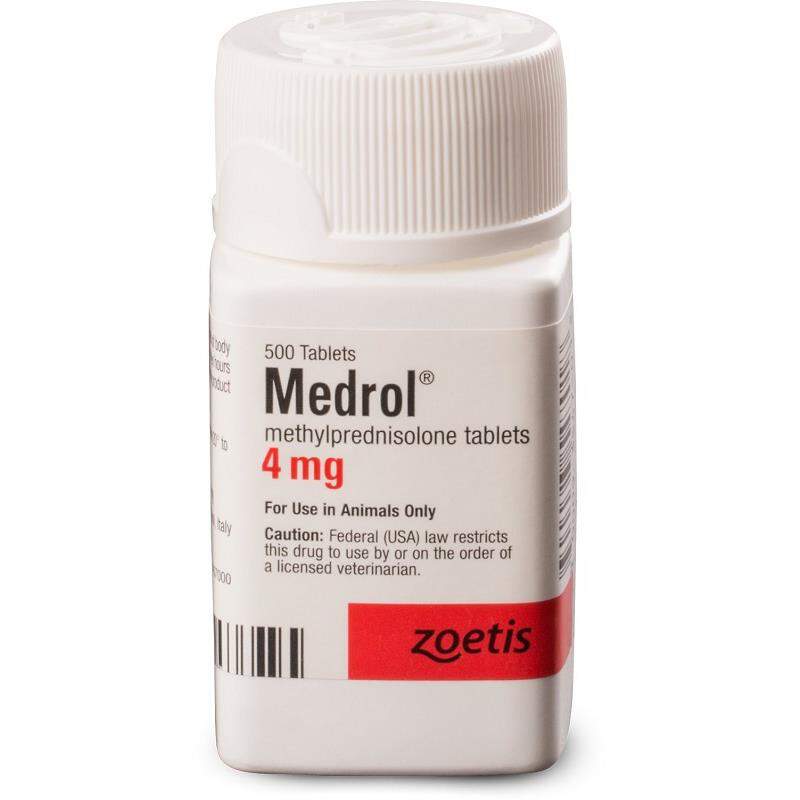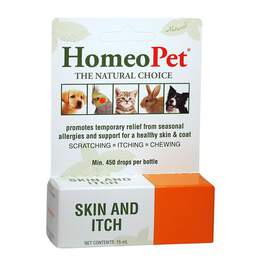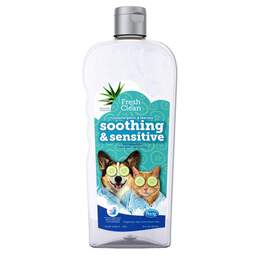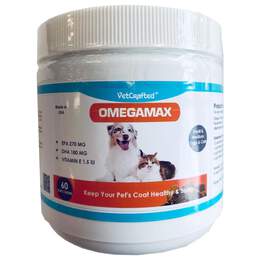Per Tablet
Click on image to open expanded view
Item No.
52110
Medrol (Methylprednisolone) Tablet, 4 mg Rx
Availability:
-
In Stock
AutoShip & Save 35%
Product Description
Medrol (Methylprednisolone) is formulated for cats and dogs who have conditions that respond to anti-inflammatory corticosteroid treatment, such as musculoskeletal, otic, ocular, allergic, dermal, and collagen conditions, along with a number of recurrent or chronic illnesses (such as nephrosis or ulcerative colitis).
Who is Medrol (Methylprednisolone) Tablet, 4 mg for?
Dogs and Cats.
Why use Medrol (Methylprednisolone) Tablet, 4 mg?
With optimized potency, Medrol allows for a lower dose to accomplish similar results to prednisolone and prednisone with a lower risk of adverse reactions, including polydipsia and polyuria. This medication reaches its peak serum concentration in one to two hours for rapid itch relief. The easy-to-feed, small tablets are scored for accurate and convenient dosing.
How does Medrol (Methylprednisolone) Tablet, 4 mg work?
Medrol contains Methylprednisolone, a glucocorticoid steroidal drug that treats animals with immune-mediated conditions, animals with adrenal gland conditions, and animals with a variety of inflammatory conditions. It has similar characteristics to prednisolone and prednisone, but with a lower risk of side effects and slightly greater potency.
Manufacturer:
Zoetis
Active Ingredients(s):
Methylprednisolone
How is Medrol (Methylprednisolone) Tablet, 4 mg sold?
Sold per Tablet 4 mg
What are the side effects of Medrol (Methylprednisolone) Tablet, 4 mg?
If the animal is exposed to any exceptional stress, such as severe infection, trauma, or surgery, adequate adrenocortical supportive treatment with hydrocortisone or cortisone, as well as ACTH, must be administered as soon as possible. Because methylprednisolone, like prednisolone, decreases endogenous adrenocortical activity, the animal patient receiving MEDROL must be closely monitored not only during therapy but also for a period of time after treatment has ended. Concurrent usage of daily oral ascorbic acid supplements may be beneficial in reducing ecchymotic tendencies. Ecchymotic symptoms may develop in cats and dogs, even if they are not recognized during the clinical examination. If such reactions develop and become severe, methylprednisolone medication should be stopped or the dosage reduced. Effective maintenance dosages of MEDROL are unlikely to cause excessive potassium loss, just as they are unlikely to cause excessive salt retention. However, these consequences should be considered, and the regular regulatory procedures should be implemented as necessary. Negative nitrogen balance is possible, especially in animals requiring long-term maintenance treatment. The use of a proper anabolic drug, when warranted, or a high protein intake are two ways to combat chronic nitrogen loss. The use of methylprednisolone in animal patients with diabetes mellitus has been linked to a rise in insulin requirements. In clinical studies with MEDROL Tablets in cats and dogs, the risk of unpleasant side effects is lower with methylprednisolone than with prednisolone at therapeutically equal dosages; furthermore, adverse symptoms have been noticeably absent. However, methylprednisolone is comparable to prednisolone in terms of the sorts of metabolic changes and adverse effects to expect during prolonged or severe therapy.
What special precautions are there?
Congenital abnormalities such as anasarca, phocomelia, and malformed forelegs have been linked to corticosteroids given to dogs during pregnancy. Corticosteroids given parenterally or orally to animals during the final trimester of pregnancy have been shown to produce the initial stage of parturition, as well as premature parturition, metritis, retained placenta, fetal mortality, and dystocia. Corticosteroids given to mice, rabbits, and dogs during pregnancy have also been linked to cleft palate in their offspring. The normal early symptom of hydrocortisone or cortisone overdose (ie, rise in body weight owing to fluid retention) is not a valid measure of overdosage since this anti-inflammatory steroid has limited sodium-retaining effect. As a result, approved dosage levels should not be exceeded, and all animals taking MEDROL should be closely monitored by a veterinarian. MEDROL Tablets, like prednisolone and other adrenocortical steroids, is a powerful therapeutic medication that affects the biochemistry of nearly all of the body's tissues. Methylprednisolone may disguise the indications of infection and promote the spread of the infecting organism due to its suppressive action on fibroplasia. As a result, all animals taking methylprednisolone should be monitored for signs of illness. If infection occurs, it must be treated with suitable antimicrobial methods or methylprednisolone should be stopped. Not for use in humans. Keep out of the reach of animals and children.
What to do if overdose?
Contact the closest emergency animal clinic.
How can I store Medrol (Methylprednisolone) Tablet, 4 mg?
Store between 20° and 25° Celsius (68° and 77° Fahrenheit) in a temperature-controlled environment.
Overview
Use as prescribed by your veterinarian.
Main Ingredients
Methylprednisolone







